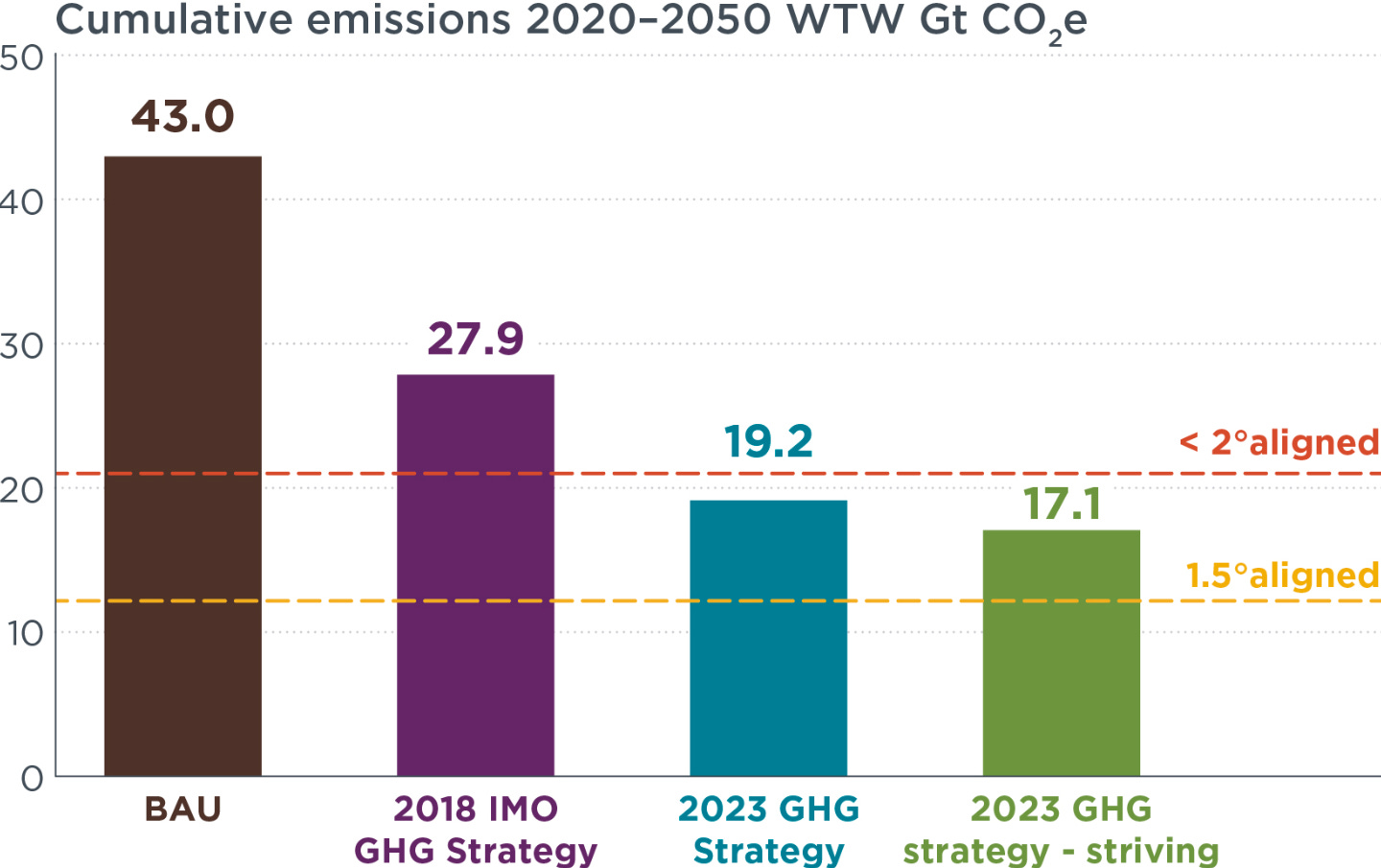Decoding the IMO's latest GHG Strategy for International Shipping
Evaluating the Revised Strategy's Compatibility with Global Climate Goals
💡 Key Takeaways:
1️⃣ Improved Targets: The revised IMO GHG strategy sets ambitious goals for member states, including reaching net-zero GHG emissions by or around 2050 and introducing indicative checkpoints for emissions reduction by 2030 and 2040.
2️⃣ Compatibility with Paris Agreement: The initial GHG strategy fell short of aligning with the Paris Agreement's temperature goals. However, the revised strategy, if followed, can keep global temperature rise well below 2°C, a crucial step towards a sustainable future.
3️⃣ Life-Cycle Emissions Focus: The revised strategy emphasizes life-cycle, well-to-wake (WTW) GHG emissions and introduces a "zero date" by which these emissions should fall to zero. This holistic approach, measured in CO2e100, ensures a comprehensive assessment of the sector's carbon footprint.
4️⃣ Carbon Budget Analysis: Based on emission factors and international shipping fuel mix, the ICCT estimates the sector's carbon budget. The current figures indicate approximately 12 Gt WTW CO2e100 for 1.5°C alignment and 21 Gt for well below 2°C, with associated temperature rise probabilities.
5️⃣ Challenges Ahead: Despite the revised strategy, the shipping industry faces hurdles in meeting the 1.5°C target. The emission reduction pathway needs to be intensified to avoid exceeding the 1.5°C carbon budget by 2032. However, the well below 2°C budget remains within reach.
6️⃣ Short-Term Measures: The IMO's Energy Efficiency Existing Ship Index (EEXI) and Carbon Intensity Indicator (CII) aim to regulate GHG emissions. While legally binding, their current effectiveness falls short. Revisions by 2026 can enhance their impact and drive meaningful emissions reductions.
7️⃣ Mid-Term Measures: The development of a "basket of measures" at the IMO, including a GHG fuel standard (GFS) and economic elements, presents further opportunities. The GFS can gradually reduce WTW CO2e intensity, while economic measures like a feebate program or cap-and-trade scheme are under consideration.
8️⃣ Regional Contributions: Countries and regions can play a crucial role in decarbonizing shipping by setting their own requirements for ships calling on their ports. Initiatives like the European Union's FuelEU Maritime and Emissions Trading System provide inspiration for more ambitious regional policies.
Source: ICCT
Source: ICCT
Introducing Carbon Rank: Empowering the transition to a sustainable future. As your trusted partner, we offer independent assessments of decarbonization strategies, validate net zero plans, and rank companies' progress towards emission reduction targets. Join us on our journey to accelerate the shift towards a low-carbon economy. Visit our website here to engage with us. Follow our Linkedin page here for climate strategy updates that can be shared with your network






